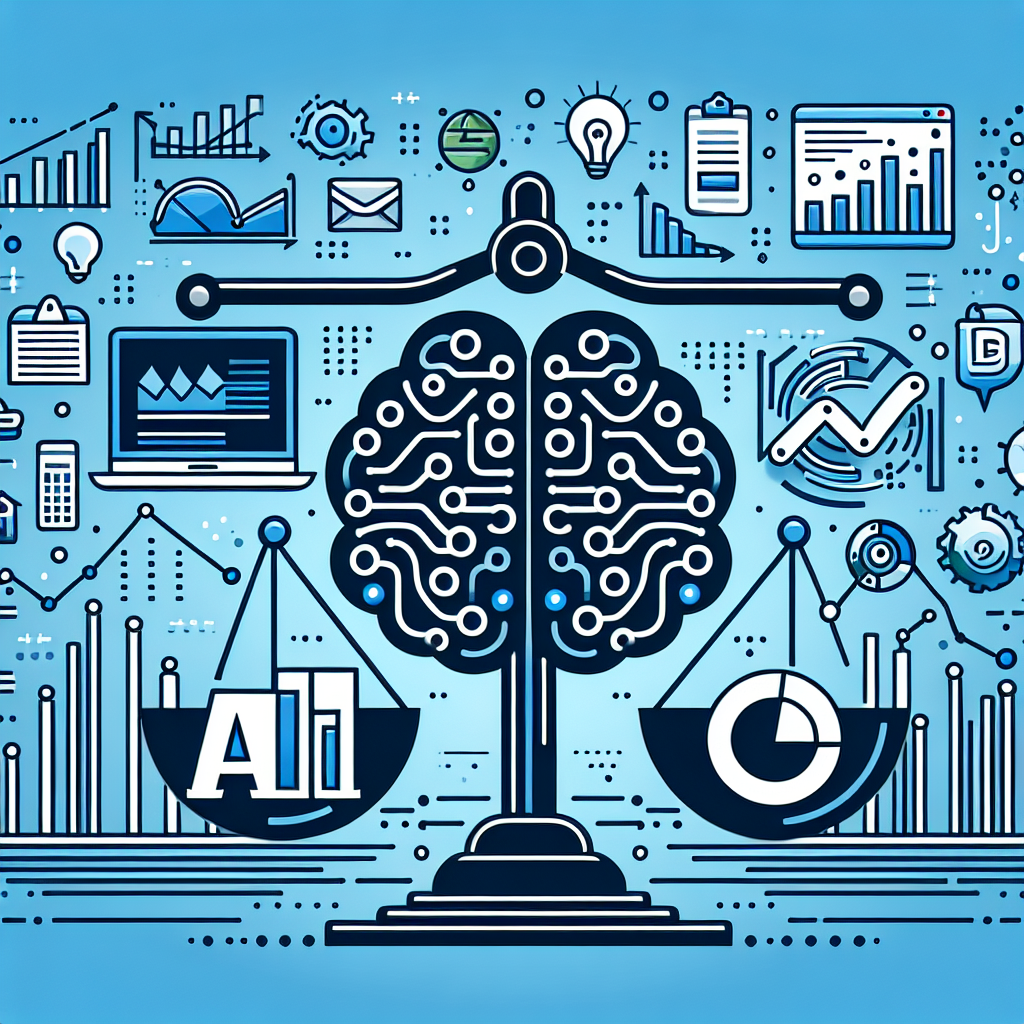Artificial Intelligence (AI) has become an integral part of many industries, including business intelligence (BI). AI technologies have revolutionized the way businesses collect, analyze, and interpret data, providing valuable insights and helping organizations make informed decisions. In this article, we will explore the benefits of AI in BI applications and how it can help businesses thrive in today’s data-driven world.
1. Improved Data Analysis
One of the key benefits of AI in BI applications is its ability to analyze vast amounts of data quickly and accurately. AI algorithms can sift through large datasets, identify patterns, and extract valuable insights that may not be apparent to human analysts. This enables businesses to make data-driven decisions based on real-time information, rather than relying on intuition or guesswork.
AI-powered BI tools can also provide predictive analytics, forecasting future trends and outcomes based on historical data. This helps businesses anticipate changes in the market, identify potential risks, and optimize their strategies for better results. By harnessing the power of AI, organizations can gain a competitive edge in today’s fast-paced business environment.
2. Enhanced Customer Insights
AI technologies can help businesses gain a deeper understanding of their customers by analyzing their behavior, preferences, and feedback. AI-powered BI tools can segment customers based on their buying habits, demographics, and interactions with the company, allowing businesses to tailor their products and services to meet individual needs.
AI can also help businesses personalize their marketing campaigns, delivering targeted messages to specific customer segments based on their preferences and past interactions. This can improve customer engagement, increase conversion rates, and drive revenue growth. By leveraging AI in BI applications, businesses can build stronger relationships with their customers and create a more personalized experience that leads to increased loyalty and satisfaction.
3. Streamlined Operations
AI can automate repetitive tasks and processes, freeing up employees to focus on more strategic activities. In BI applications, AI algorithms can automate data collection, cleansing, and analysis, reducing the time and effort required to generate insights from raw data.
AI-powered BI tools can also streamline reporting and visualization, presenting information in a clear and digestible format that is easy to understand. This enables businesses to make faster decisions based on real-time data, improving their agility and responsiveness to changing market conditions.
By automating routine tasks and processes, AI can also help businesses reduce operational costs, increase efficiency, and improve overall productivity. This allows organizations to allocate resources more effectively and focus on driving innovation and growth.
4. Enhanced Decision-Making
AI can help businesses make better decisions by providing accurate and timely insights that are based on data-driven analysis. AI algorithms can identify correlations, trends, and anomalies in the data, enabling businesses to detect patterns and make informed decisions that drive positive outcomes.
AI-powered BI tools can also generate recommendations and predictions, guiding businesses on the best course of action based on historical data and real-time information. This can help businesses optimize their operations, improve their performance, and achieve their goals more effectively.
By leveraging AI in BI applications, businesses can enhance their decision-making processes, reduce risks, and seize new opportunities that may have gone unnoticed. This can lead to increased profitability, growth, and competitive advantage in today’s dynamic business landscape.
FAQs
Q: What are some popular AI-powered BI tools available in the market?
A: Some popular AI-powered BI tools include Tableau, Power BI, Qlik Sense, Domo, and Looker. These tools leverage AI technologies to provide advanced analytics, predictive modeling, and data visualization capabilities that help businesses gain valuable insights from their data.
Q: How can AI help businesses improve their customer service?
A: AI can help businesses improve their customer service by providing personalized recommendations, automating responses to customer inquiries, and analyzing customer feedback to identify areas for improvement. AI-powered chatbots, virtual assistants, and sentiment analysis tools can enhance the customer experience and drive customer satisfaction.
Q: What are some challenges businesses may face when implementing AI in BI applications?
A: Some challenges businesses may face when implementing AI in BI applications include data security and privacy concerns, integration with existing systems and processes, and the need for skilled AI talent. It is important for businesses to address these challenges proactively and develop a comprehensive strategy for implementing AI in BI applications successfully.
In conclusion, AI has the potential to transform the way businesses collect, analyze, and interpret data, providing valuable insights and helping organizations make informed decisions. By leveraging AI in BI applications, businesses can improve data analysis, enhance customer insights, streamline operations, and enhance decision-making processes. With the right tools and strategies in place, businesses can harness the power of AI to drive innovation, growth, and success in today’s data-driven world.

